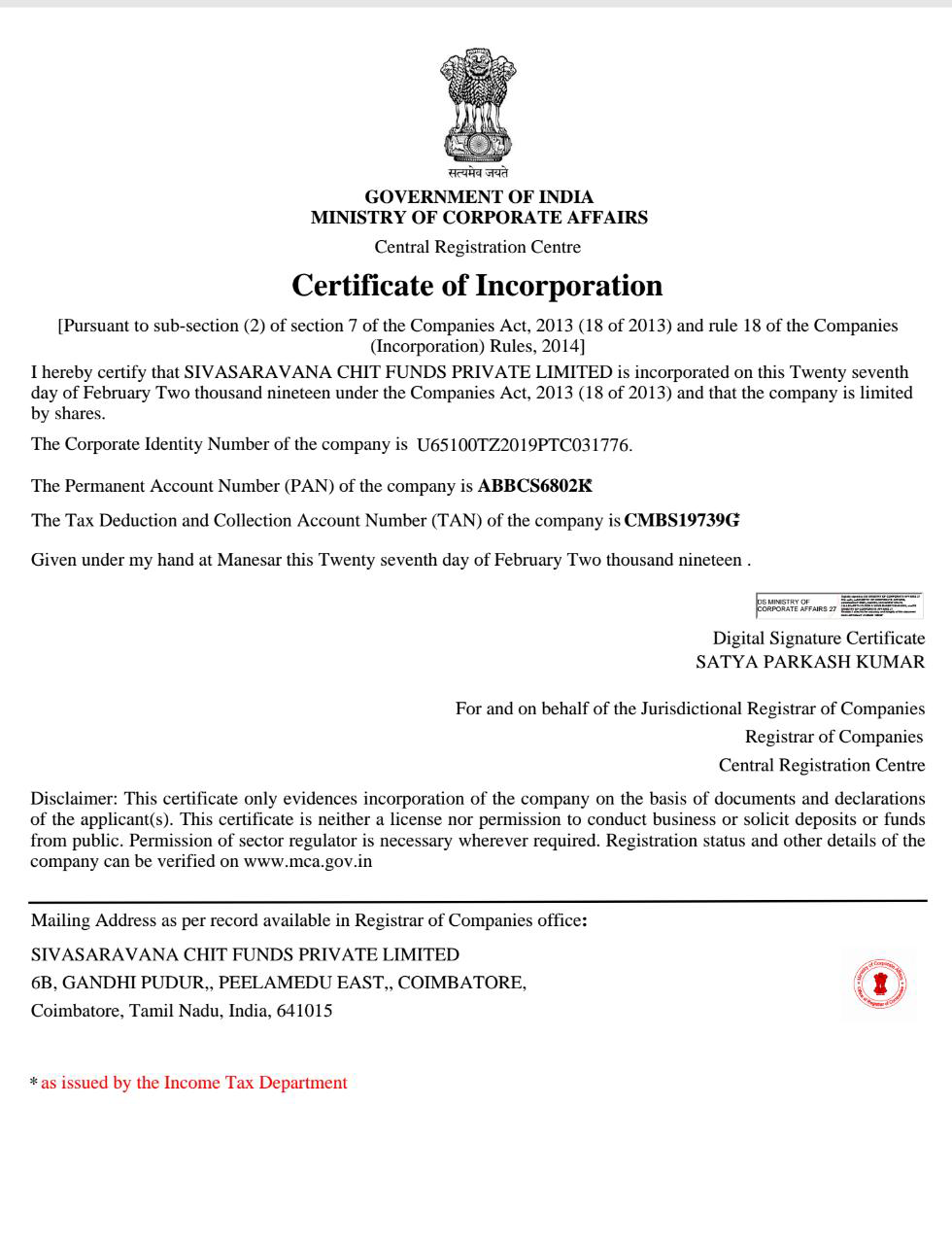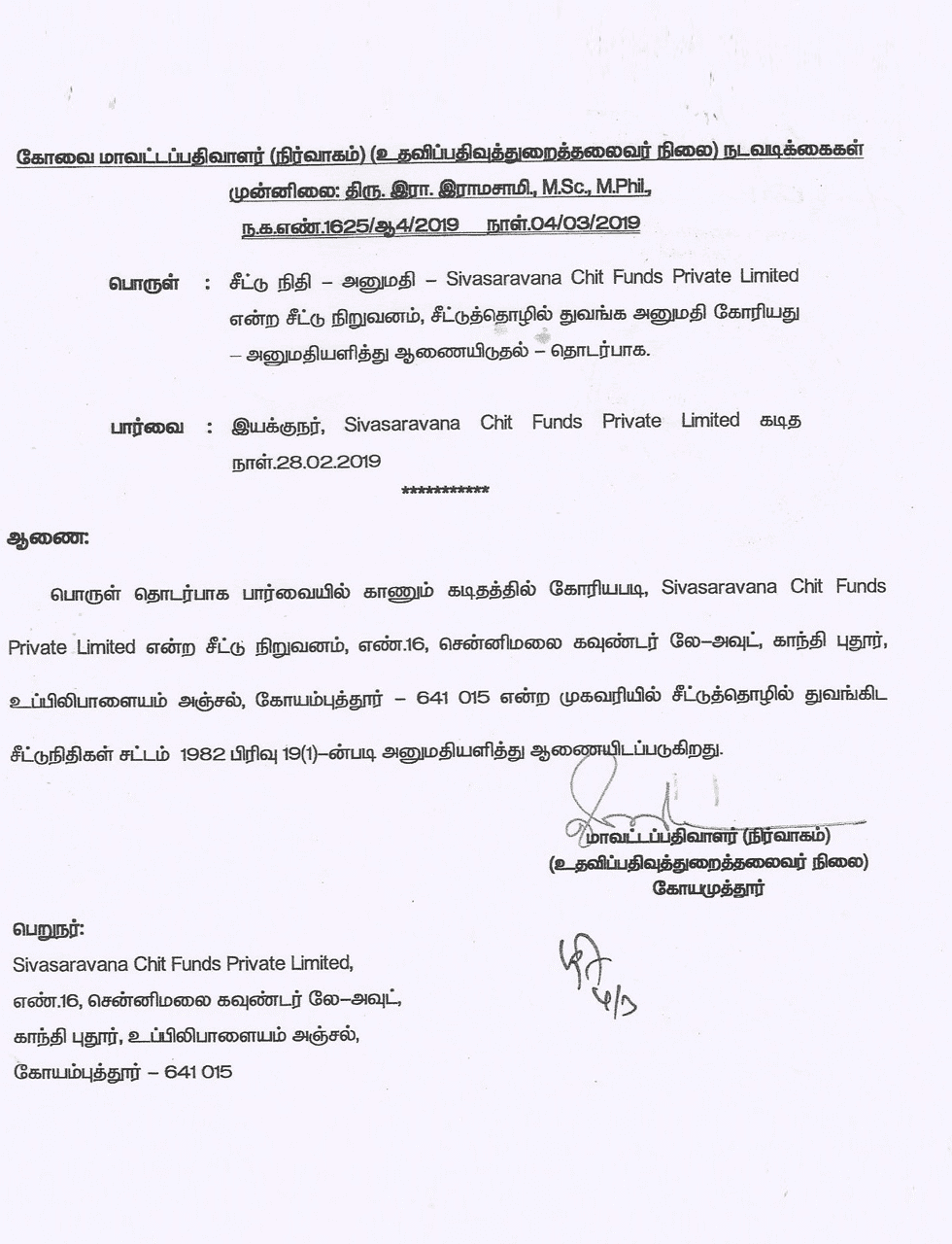The Privacy Policy governs the use of this website
(https://sivasaravanachits.com/) of Siva Siva
Saravana Chit Funds. By accessing and using our website and services, you agree to be
bound by the terms and conditions of this Privacy Policy of Siva Saravana Chit Funds. By
accepting the Privacy Policy, users expressly consent to Siva Siva Saravana Chit Funds
use and disclosure of their information in accordance with this privacy policy
Siva Saravana Chit Funds is committed to protecting user privacy and working towards
offering users a streamlined and safe online experience. Our web site
(https://sivasaravanachits.com/) does not collect personal information
except when individuals specifically provide
such information. on a voluntary basis. We will not sell or transfer personal
information to unaffiliated third parties unless we have obtained explicit consent from
the User or as otherwise stated at the time of collection.
Siva Saravana Chit Funds treats your personal information as confidential and does not
edit or reveal it to any third parties except where it believes in good faith, such
action is necessary to comply with the applicable legal and regulatory processes. Siva
Saravana Chit Funds and its affiliates will be allowed to share some or all of the
user’s information with another business entity, should the company plan to merge with,
or be acquired by that business entity. In the event such a transaction occurs, that
other business entity or the newly formed entity will be required to follow this policy
down to the letter.
Except where necessary for operational or regulatory reasons, Siva Saravana Chit Funds
will not send you any unsolicited information. If the user does not opt out, Siva
Saravana Chit Funds may use any e-mail addresses of users to send occasional e-mails
pertaining to information on products and services.
Siva Saravana Chit Funds may collect anonymous statistics to measure the interest and
usage of different areas of our website. We will only communicate with users via email
or other if they have opted-in to receive our communications. Users can easily
unsubscribe from our mailing lists by informing us.
Siva Saravana Chit Funds reserves the right to correct any content on our website at our
sole discretion, without prior notice. The content of our website, including information
and materials, cannot be displayed or printed without our prior written approval. Any
reproduction, modification, uploading, downloading, publishing, republishing,
transmitting, or distributing of our website's information or company logo for
commercial purposes is strictly prohibited without our explicit permission. Unauthorized
reproduction of any information or material provided on our website, whether modified or
unmodified, will be considered a violation of our copyright and may be deemed an illegal
act.
Please note that the financial products and information tools provided on our website are
for general information purposes only and should not be solely relied upon for making
financial decisions. We recommend that you contact one of our branches for advice on the
chit fund schemes available
USE OF INFORMATION
The information and materials contained in these pages and the terms, conditions, and
descriptions that appear thereon are subject to change. They should not be regarded as
an offer, solicitation, invitation, advice regarding any financial product of Siva
Saravana Chit Funds. You are therefore requested to verify the information with the
company’s offices before relying on the same. Financial products and services shown on
the website may be withdrawn or amended or varied at any time at the sole discretion of
Siva Saravana Chit Funds.
LIMITATION AND LIABILITY
Please note that Siva Saravana Chit Funds shall not be liable for any loss or damage,
whether direct or indirect, special, economic, incidental, or consequential, arising
from the use of this site or inability to use by any party. We shall not be responsible
for any failure of performance, error, omission, interruption, defect, delay in
operation or transmission, computer virus, or system failure, even if we have been
advised of the possibility of such damages, losses or expenses. By using our website,
you agree to release and hold us harmless from any claims, damages, or other liabilities
arising from or related to your use of our website. Consequently, Siva Saravana Chit
Funds will not be liable for any loss or damage arising directly or indirectly from the
accuracy or otherwise of materials or information contained on the pages of such sites,
or for any loss arising directly or indirectly from such problems.











































